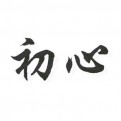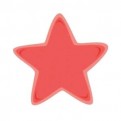是的选择疑问句的答语一般不用"yes或no",通常从or前后的选项中选择一个作为答语。
如:Are you a teacher or a student?你是个老师还是个学生?其答语要么是:I am a student.要么是:I am a teacher.但有的情况例外,可根据实情况回答。如:Shall we walk, or shall we go by bus?咱们步行去,还是乘公共汽车去?回答可能是:No, we go by taxi.不,我们要乘出租车。Would you like tea or coffee?你想要茶还是咖啡?Neither, I want a glass of water.都不,我想要一杯水.Would you like coffee or tea?Coffee/ Tea, please.或 Both, please. 各给我一杯。或 Neither. 都不要。或 Either is OK. 哪个都行。Which do you like best, sing, dancing or skating?唱歌, 跳舞和溜冰你最喜欢哪样?Dancing, of course.当然是跳舞啦。区分一般疑问句与选择疑问句在朗读选择疑问句时,通常是在前一个(两个)选择项的用升调(↗),最后一个用降调(↘), 如:Would you like apples↗,bananas↗,or oranges↘?你是要苹果,香蕉,还是桔子?这种语调上的特征往往是区别选择疑问句和一般疑问句的重要标志。比较:Shall we leave at↗six or ↘seven?我们是 6 点动身还是 7点动身?选择疑问句,其答案只能是两者之一We shall leave at six/ seven.我们将在6点/7点动身。Shall we leave at ↗six or seven?我们在6;7点钟动身好吗?一般疑问句,它的答案只是 yes/no:Yes,we shall leave at six or seven.是的,我们将在 6、7点钟动身。No.We must leave earlier.不。我们必须早点动身。












